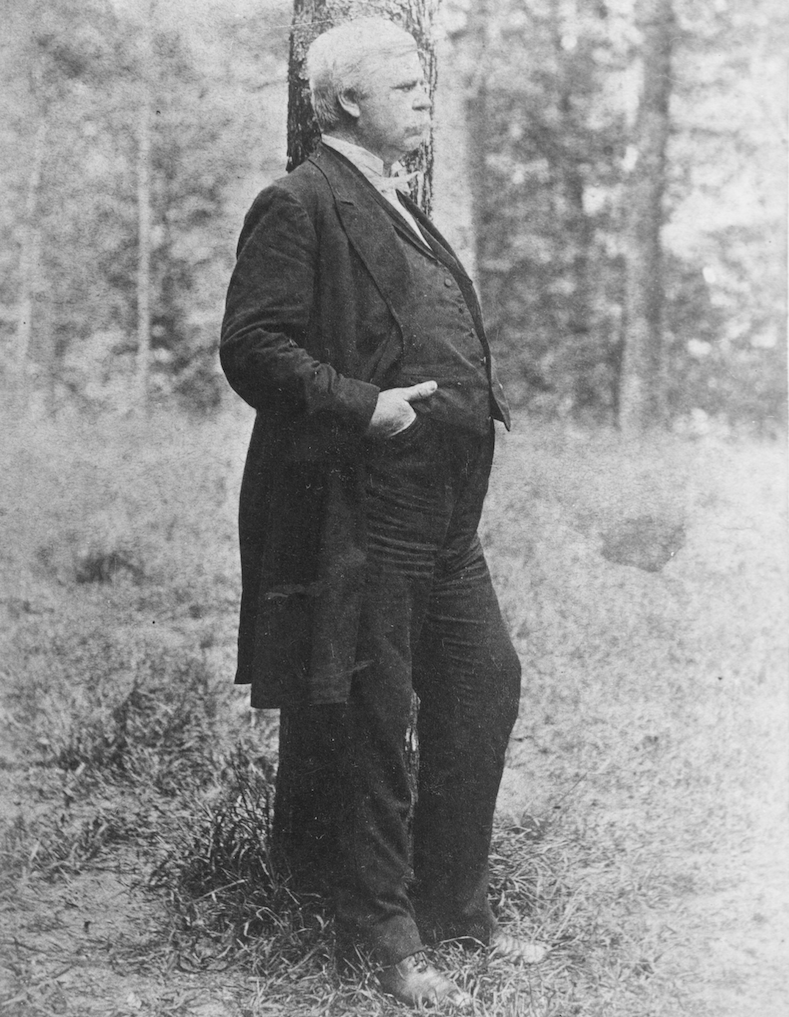On March 16, 1860, North Carolina Congressman Zebulon Baird Vance addressed the U.S. House of Representatives. At the time, the Union was still intact but the threat of secession and bloodshed was looming.
In his opening remarks, Vance decried the idea of emancipation as not only “utterly absurd,” but also a threat to the purity of the white race. “Amalgamation is so odious that even the mind of a fanatic [abolitionist] recoils in disgust and loathing from the prospect of intermingling the quick and jealous blood of the European with the putrid stream of African barbarism,” he declared.
To avoid this outcome, as well as war, Vance offered the following solution to his fellow congressmen:
“Plainly and unequivocally, common sense says keep the slave where he is now — in servitude. The interest of the slave himself imperatively demands it. The interest of the master, of the United States, of the world, nay of humanity itself, says, keep the slave in his bondage; treat him humanely, teach him Christianity, care for him in sickness and old age, and make his bondage light as may be; but above all, keep him a slave and in strict subordination; for that is his normal condition; the one in which alone he can promote the interest of himself or of his fellows.”
Shifting his focus to states’ rights, Vance contested that prohibiting slavery in Western territories or denying a territory admittance as a new state because of a pro-slavery stance, “would be a direct and unequivocal interference” by the federal government.
Later in his address, Vance chastised abolitionist rhetoric. “[Y]our agitation and eternal harangues have a direct and inevitable tendency to excite our slaves to insurrection,” he proclaimed.
Vance continued:
“It is unnatural to suppose that the noise of this great conflict will not reach the negro’s ear, and that your violent professions of regard for his rights will not make him believe that those who shelter him when he runs away, will not also help him to cut his master’s throat. The constant denunciation of his owners by your crazy fanatics will make him regard them as monsters, and will cause him to cherish the coals of rebellion until they burst forth into a consuming fire.”
He then further denounced Northern abolitionists, accusing them of hypocrisy. “You know that slave labor has built all your cities and towns, has erected your great warehouses, freights your rich navies, and carries wealth and happiness throughout all the bleak and sterile hills of New England.”
Vance concluded his speech by insisting that the responsibility to avoid a civil war fell in the hands of the country’s Northern representatives. If they continued to insist on emancipation or denied the westward expansion of slavery, they would leave the South no choice.
Vance asked:
“Will the great conservative masses of the northern people, who are inheritors with us alike of the common glories of the past, and heirs-apparent of the unspeakable glories of our future, continue to urge this dire extremity upon their southern brethren?”
On Dec. 20, 1860, South Carolina seceded from the Union. Over the next six months, 10 additional states would follow, including North Carolina on May 20, 1861. In 1862, Vance was elected governor of North Carolina. Three years later, the Confederate Army was defeated, and Vance was briefly imprisoned.
Vance’s white supremacism continued beyond the Civil War. In 1874, he again addressed the House of Representatives, condemning a bill that sought to outlaw racial discrimination. (For more on this, see “Asheville Archives: Zebulon Vance Argues Against Civil Rights, 1874,” Aug. 26, 2019, Xpress).
Vance died on April 14, 1894. Four years later, at the May 10, 1898 unveiling of the Vance Monument at today’s Pack Square, Tennessee Gov. Robert L. Taylor spoke. Throughout his address, Taylor praised Vance’s contributions to North Carolina as well as the nation at large.
“Through his long and brilliant career,” Taylor declared of the former slave owner and Confederate colonel, “his love of humanity never waned and his devotion for this country never cooled.”
Editor’s note: Peculiarities of spelling and punctuation are preserved from the original documents.




Gordon McKinney, often described as a “local historian,” has written the definitive biography of Zebulon Vance. He is the editor of Vance’s papers, and his publisher, UNC Press, says, “Gordon McKinney presents Zebulon Baird Vance (1830-94) as a far more complex figure than has been previously recognized. ” McKinney’s view of Vance as a “racist” is cited by journalists, but McKinney himself has not been consulted, as far as I can determine. His book is indeed very candid about Vance’s views. I’m curious to know what Mr. McKinney has to say about the issue of retaining/removing/contextualizing the Vance Monument. Could your reporter ask him directly?
This article made Esther Manheimer cry.
Again.
Showing emotion and compassion for fellow human beings is good. Try it sometime.